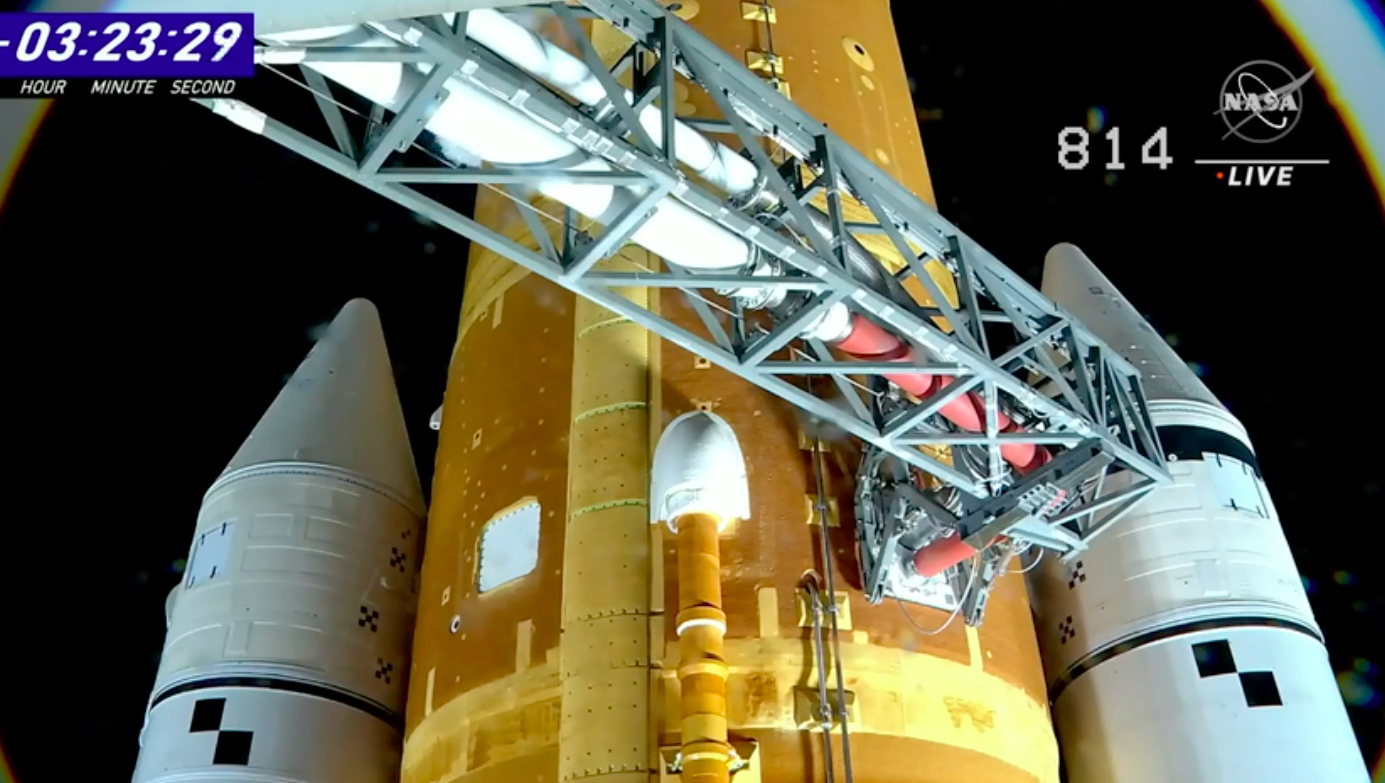
CAPE CANAVERAL—The Kennedy Space Center launch team was assessing a potential hydrogen leak in the tail service mast umbilical, located at the base of the Space Launch System (SLS) core stage.
Liquid oxygen continued to flow into the SLS core stage while troubleshooting of the potential hydrogen leak was underway. NASA has a 2-hr. window, which opens at 8:33 a.m. EDT, for a launch attempt on Aug. 29 to begin the Artemis I flight test.
The issue surfaced as the flow of liquid hydrogen into the core stage was transitioning from slow-fill mode to fast-fill. Indications of the leak were detected in tail service mast “purge can,” which is the housing for a quick disconnect in the line through which liquid hydrogen, chilled to -423F, flows through a supply line into the 538,263-gal. SLS core stage propellant tank.
The slow-fill of liquid hydrogen was halted temporarily by the launch control team, then resumed to determine whether the leak would return and to what extent.
While the launch control team assessed the liquid hydrogen leak concern, liquid oxygen, chilled to -294F, continued to flow into the 196,000-gal. tank.
Liquid hydrogen fast-fill operations resumed after about an hour, with engineers keeping a close on the concentration of hydrogen in the purge can.
A hydrogen leak in the same area halted NASA’s first SLS tanking test in April.
NASA's Mission Management Team cleared the launch team to begin propellant loading shortly before midnight, starting first with the preparations to begin the loading of liquid oxygen then liquid hydrogen propellants. Fueling, however, was delayed by about 30 min. due to storms off the coast of the Kennedy Space Center launch site.





